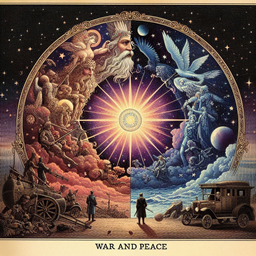By Ron Raskin

Today, people in Israel and in many Western countries usually think of peace as the end of conflict — something that will last for a very long time. And in places like Europe, that makes sense. A war between France and Germany, or Britain and Spain, sounds crazy today. No one wants it, no one believes it could happen, and no one even thinks about it. Peace is just a fact — that’s it.
But that’s not how things worked in Europe in the past, and it’s not how things work in the Middle East today.
In the past, all European nations understood well that peace was something temporary and fragile. Peace only meant that the current balance of power prevented each side from attacking the other. It did not mean that nations shared the same interests or values, and it certainly didn’t mean there were no hostile intentions. On the contrary — European diplomacy, based on “realpolitik,” operated under the assumption that if given the opportunity, any nation would use it to attack.
Now let’s look at today. Israel has peace agreements with a few Arab countries — but it’s a cold peace. These agreements aren’t based on shared values or deep friendships. While many Israelis view these agreements as ensuring no future wars with those signatories, the other side often sees them for what they are: a temporary arrangement that may change when circumstances allow — a time to regroup and prepare for the next conflict. Countries like Egypt still teach hate toward Israel. They don’t really want Israel to exist, and they don’t share the same values as Israel or the West. They just think that right now, fighting Israel isn’t worth the cost. The risks are too high.
Just as the Western perception of peace as something eternal is flawed, so too is the Western perception of war. In the West, war is seen as something with a clear start, a clear end, and a short duration — a few weeks or a few years, and then it’s over. But this is not how war is perceived in the Middle East. Here, war can last hundreds of years. From time to time, it includes hot periods — individual battles within an endless war. One may lose or win such a battle, but it doesn’t matter much as long as the strategic position improves and the long-term odds of eventual victory increase. Even a military defeat can be considered a strategic win if it stirs hatred and motivation among the masses.
Consider how Israel perceives the Yom Kippur War — Israel sees it as a clear victory and from a military point of view, it was. But Egypt also sees it as a victory — not because they are unaware of how it ended militarily, but because they view it as just one piece of a larger puzzle, with another piece being the 1979 peace agreement. From Egypt’s perspective, they won because the war forced Israel to return the Sinai Peninsula. Not only did they get Sinai back, but they also received large sums of money from the United States. And what did they give in return? A piece of paper. That definitely sounds like a win from Egypt’s point of view.
All of this is not to say that peace agreements with Israel’s neighbors are a bad thing — not at all. Rather, the point is that the peace agreements many Israelis (and many in the West) see as an “endgame” are definitely not the endgame. They are merely steps forward — steps that can be reversed at any time. Peace in the Middle East is simply a better situation than war: it offers more hope for a better future and reduces the chances of a hot conflict in the near term. That’s it. And it should be evaluated as such — weighed against other options, not idealized as a permanent solution in what is, in reality, a long and ongoing struggle ahead of us.

